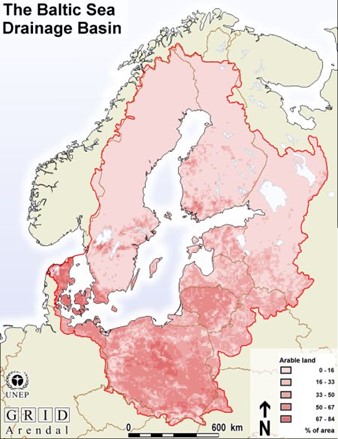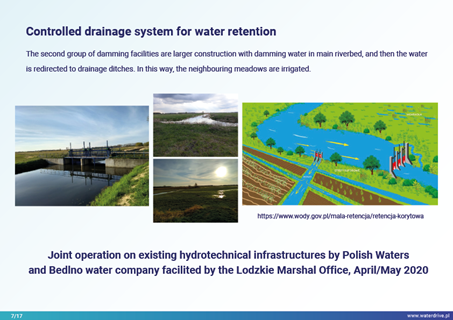The Waterdrive project, funded by the EU Baltic Sea Region Program ended in March 2022. The mission was to explore smart water management actions on an agricultural landscape level in the Baltic Sea Region. Actions that improve water quality, enhance food security and other ecosystem services in a changing climate. The results came out of nine case areas in the Baltic Sea Region including Poland, Estonia, Finland, Russia, Denmark, Latvia, Lithuania and Sweden.




-
LOCAL CROSS-SECTOR JOINT ACTION
The Waterdrive case areas have identified the local cross-sector joint action as an effective method for solving complex problems. All countries have agri-environment programs addressing the individual farms. However, the local cross-sector joint action is in most cases poorly stimulated or not at all. The interest for such initiatives is growing in the region. -
HOLISTIC WATER MANAGEMENT
The agri-environment support is mostly geared towards single environmental challenges like nutrient management or biodiversity etc. However, from a farm and/or catchment water management perspective the challenges are holistic and multifaceted. Secure food production, access to clean water, soil fertility, biodiversity and climate change adaptation/mitigation are all parts of a whole. The interest for such more holistic policies is meagre, but slowly growing and picking up speed in the Baltic Sea Region. -
LEADERSHIP
There is a lack of leadership especially on national and central levels advocating for more holistic water management approaches. In contrast leadership, advocating for more holistic water management approaches, is however, clearly demonstrated on the local level in the Waterdrive case areas. In general, there is still a divide between agricultural and environmental interests although the divide is narrowing. Leaders within organizations and authorities additionally bridging that divide will be front-runners in opening new opportunities for sustainable rural communities. -
MOTIVATION
According to Waterdrive studies, farmers have a strong interest in water management and nature. However, farmers are lacking time and resources to engage in agri-environment programs. The level of financing for agri-environment programs does not compensate enough for complicated bureaucracy and long-term commitments. However, as mentioned farmers have a strong interest in water management issues. -
NEW SERVICES
Some countries have invested in new services to facilitate local water management names “catchment officers/facilitators/experts”. The interest from all countries for learning more about such services has been very high during Waterdrive